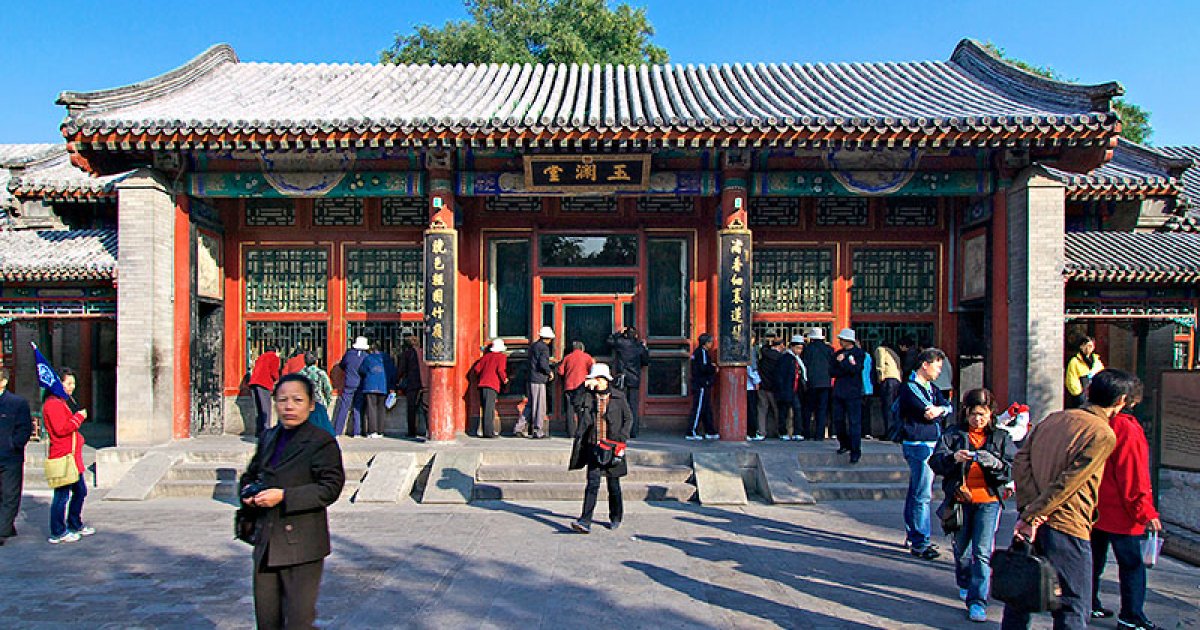SUMMER PALACE, Hall Of Jade Ripples
 Language: English / USA
Language: English / USA
The Hall of Jade Ripples was originally built in 1750, during the reign of Emperor Qianlong, for dealing with state affairs, but it was rebuilt in 1892 as a residence for Emperor Guangxu, in traditional "sanheyuan" Chinese style with one main room in the center and another two at the sides.
Emperor Guangxu was confined here by the Empress Cixi in 1898, accused of advocating a reform of the outdated feudal system, which his aunt opposed. To stop the emperor from leaving, brick walls were built; they were later demolished, but traces of them are still visible.
The interior is furnished with hundreds of antiques, many of them dating to the time of Emperor Qianlong, such as the desk and the exquisitely carved rosewood and sandalwood throne. The screen behind the throne is composed of two layers of glass painted with traditional landscapes, both Chinese and Western. On the desk, you can still see the objects used by the emperor. The two side rooms are equally richly decorated with furniture, fans, a throne and a Kang bed.
Now press pause and visit the pavilion. Press play again once you reach the Yiyun Hall: just go out of the back door of the main room.
This magnificent structure was built by Emperor Qianlong as a library. It was called the Yiyun Hall after Yun, the name of an herb able to protect books from moths.
The Hall, burned down by the English and French allied forces in 1860, was repaired on the orders of Emperor Guangxu, and used as a residence by his wife, Empress Longyu.
In 1992, the furnishings of the Yiyun Hall were restored to reflect those used during the reign of Emperor Qianlong, with over a hundred pieces of period furniture based on archive images and documents. The throne of the Empress Longyu is original, however, and decorated with precious stones and bamboo filaments.
An interesting fact: Longyu was the last empress of China. In 1908, when Cixi and Guangxu died, they were succeeded by Emperor Puyi, aged just three, who was not the son of the imperial couple. Puyi lost power, however, in 1912, at the age of just seven, and it was Longyu who drafted the abdication documents that brought the Qing dynasty to an end.



